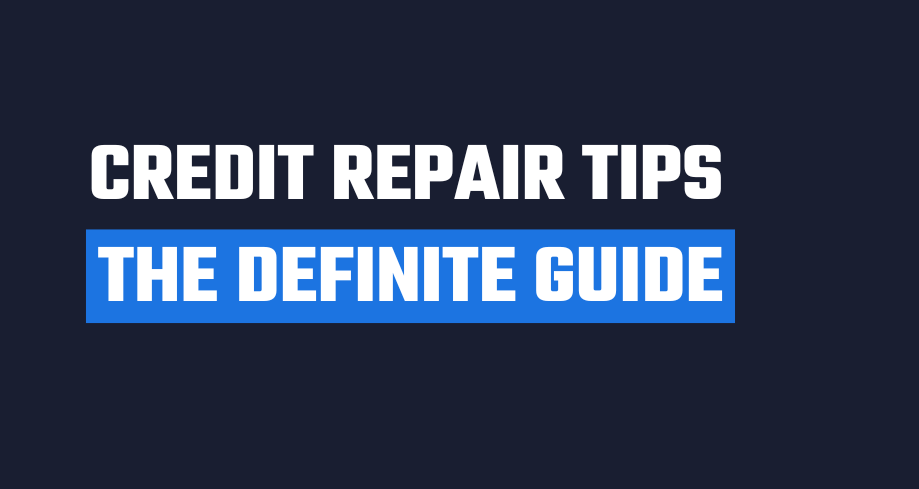Why does a good credit score matter?
A good credit score can become your best friend. It lowers your interest rates charges, positions you as a low-risk for borrowers, and increases your chance of overall credit products and payment conditions.
With a good credit score, you will almost always qualify for the best interest rates and pay lower finance charges on credit card balances and loans. The less you pay in interest, the sooner you will pay off the debt and the more money you will have to go out and enjoy your life.
Other benefits of a solid credit score are a better chance for credit card and loan approval, easier approval for rental houses and apartments, better car insurance rates, and last but not least, the right to brag! Because You deserve a pad in the back for getting your adulting right.
Your story, my story
Most of us are on this road because we followed the same path. You have a steady income and suddenly feel like you have the money-spending superpower, but more money also means more responsibilities. It is time to identify the most common mistakes that put us in the low credit lane.
Owning many credit cards or loans in a short period
The only way to have a strong credit score in the first place is to borrow money and pay it back.
But applying for too many credit cards and loans is not as ingenious as it may seem. A lender will almost always make a hard credit pull of your credit report before extending credit or a loan, and hard inquiries cause a significant dip in your credit score for a period.
The inquiry will stay on your report for two years, regardless of whether the lender decides to extend or not that loan, harming your credit score.
Letting your credit card control your expenses
A credit card is something you must use wisely. It affects your credit score whether you use it too much or hide it in your fridge. The secret here is balance in your credit utilization ratio. To protect your credit, get only the new cards that will serve your actual projects and use them regularly.
But not using your card can be as bad as using it too much. To your credit score, your credit utilization ratio is way more important than the spending limit on your card. It is not about how much money you have to spend but how proficient you are with it.
Defaulting on a loan
As obvious as it may seem, we overlook the consequences of failing to pay on time and falling into default. The impact a default causes on your credit score if you default on a loan will stay on your record for six years, blocking you from securing loans in the future.
However, your lender only wants to recover the money. If you feel you will not make your payment on time, contact your lender directly to find a way around it. Always think about your credit score and prevent it from dropping.
Can you fix ruined credit?
Image by bruce mars via Unsplash
Yes, you can!
If you have read so far, you have probably identified what bought your credit score to this awful place, and you are ready to take the responsibility into your hands. Now, we will share with you our best credit repair tips.
-
Know the three Major Credit Bureaus 101
Do you know who they are and what they do?
The three credit bureaus are Experian, Equifax, and TransUnion. They collect information about your credit history, publish your credit report and provide a free credit report once a year. To check your credit score you will have to request it from any of the three bureaus. One may think they are the same thing, but all of them have their way of determining your score, so do not be scared if you end up with different numbers.
Knowing your score will give you a clear view of your chances as a borrower. A higher score will increase your chances of approval for loans and credit cards with favorable terms.
Every time you plan on buying a house, a car, or a place to start a business check your scores first, and know exactly where you stand.
We provide you with the mailing address for each credit bureau:
Experian: P.O. Box 4500, Allen, TX 75013
TransUnion: P.O. Box 2000, Chester, PA 19016-2000
Equifax: P.O. Box 740256, Atlanta, GA 30374-0256.
-
Get a copy of your credit report and always check it
Go to annualcreditreport.com and request your report. You can ask from each bureau, and you are entitled to ask for one free credit report once a year.
But owning your credit report is not enough your goal is to examine it for errors or wrong information is the goal. If you find any mistakes or discrepancies dispute credit report errors immediately. Just write a dispute letter to credit bureaus, and remember to send the documents to back your claim. If the credit bureau confirms the mistake, they will remove it from your report.
-
Do not close old credit card accounts
Even though canceling old credit cards might seem like a good decision, it might lower your credit score. Your credit history is one of the components used to determine your credit score, the longer your credit history, the better for you.
Therefore, even if you no longer use an old credit card, it is wise to keep the account open and let the credit card company close it. It will only take them a few months.
-
Keep your credit card balances low
Your credit card company like it when your credit card debt is high. Why? Because of the increased likelihood to charge interests to your balance.
Interest fees also generate a considerable profit for credit card corporations. So keep your credit balance low if you want to save money.
To monitor how your credit score changes, you should ideally strive for a credit usage percentage of 30% or below.
-
Pay down debts, late or past due accounts
Image by Igal Ness via Unsplash
Paying off debts and maintaining current accounts should be your main priorities if you want to raise your credit limit and stay away from poor credit.
Additionally, this will show which loans cost you more capital, allowing you to concentrate on paying off those first. Although there is not one universal strategy to manage debt, the debt snowball method is a solid starting point.
With this approach, you prioritize paying off your smallest debt first, then utilize the funds saved to pay off your next-smallest obligation, and so on.
-
Look into a secured credit card
If your poor credit limit makes it impossible for you to own an unsecured card, a secured card can help you. With these credit cards, you need to give a deposit to back you up. This deposit also serves as a credit limit.
-
diversify your credit mix
To avoid an average credit score you need to shake a bit your credit mix, diversifying is your best option. What we are trying to say is, find yourself different forms of credit, including mortgages, credit cards, and installment loans.
Restraint is fundamental. Handle each of your accounts carefully. Do not overextend!
-
Set up auto-pay
With the million thoughts that run through our minds daily, forgetting our monthly payments can become an issue. Set out auto-pay and make your card payments automatically from your checking account.
Most credit card issuers offer this service, just set it up and forget about it. Making timely payments will allow you to see a credit score increase over time.
-
Check your credit card statement each month
Checking your card statement each month will help you ensure that all transactions are legitimate.
Look carefully at your payment history. Aim to find anything that may seem unfamiliar, and when you find a discrepancy report it immediately to the card company. It is a fantastic technique to stop fraud before it gets out of control and ruins your credit scores.
10. Monitor your credit scores
Image by Marten Newhall via Unsplash
With all the credit scoring monitor models available, it is easy to monitor your score regularly.
A few good monitoring apps that include free weekly credit reports are
SmartCredit
IdentityIQ
Credit Karma
Credit Sesame
11. Negotiate with collection accounts
Try to negotiate a pay-for-delete rather than paying off your collection account first. It implies that you will only pay the collection account in the predetermined amount if your borrower agrees to take it off your credit record. Even though this method can be challenging, it’s worthwhile to try if you want to raise your credit score.
Debt settlement is the term for this kind of service but beware of the companies that make unrealistic promises.
12. keep your credit utilization low
Taking the amount of credit you use and dividing it by your credit limit will make up your utilization ratio.
If you have a credit line with a $1000 limit and use $800, your credit utilization ratio would be 80%. Keep it below 30% to show lenders that you’re a responsible borrower and that you’re not over-extending yourself.
The short-term solution?
There is not a single magic recipe, but here is ours. If you are looking forward to purchasing your dream house or getting a loan to launch your new store within the next three months, here is what you can do.
Increase your credit limit first, and then find a credit-builder loan, like Self while fixing your credit. Take advantage of the many credit repair software that are available.You can also try to include your previous rental history in the credit mix. Remember to dispute all the discrepancies on your credit reports. So they get removed before you apply for that mortgage or that loan.
That is how you can increase your chances of getting approval with a low-interest rate.
Credit repair is achievable, but you have to commit to it, we have provided you with valuable guidelines, and now it is up to you to determine your best option. It is worth the effort!





